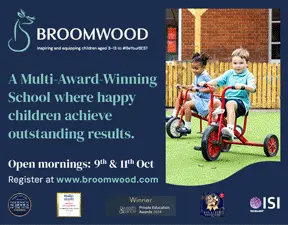Grove Park School
Church Road, Crowborough, TN6 1BN
www.grove-park.e-sussex.sch.uk
office@grove-park.e-sussex.sch.uk
Ofsted Report
Church Road, Crowborough, TN6 1BN
www.grove-park.e-sussex.sch.uk
office@grove-park.e-sussex.sch.uk
Ofsted Report

Ofsted
Good
View Report
Pupils
133
Ages
4 - 19
Gender
Co-educational
Type
Community Special School
Head Teacher
Ms Julie Campion
Grove Park School, with 133 pupils aged between 4-19, provides a nurturing environment for students. The academic performance is mixed, with 0% scoring high in key stage 2, but 9% meeting the medium cohort. The school caters to disadvantaged students, with 4 key stage 2 students receiving support. However, there is room for improvement as 91% of students fall into the lower cohort.
In terms of pastoral care, Grove Park School ensures that all students feel supported and included. Special Educational Needs are addressed, with 0% of students having SEN statements or EHC plans. The school also promotes diversity, with 14% of students speaking English as an additional language.
Extra-curricular activities are encouraged, providing students with a well-rounded education. The atmosphere at Grove Park School is welcoming and inclusive, fostering a sense of community among students and staff.
In conclusion, Grove Park School offers a supportive environment for students to thrive academically and socially. With a focus on individual wellbeing and inclusivity, the school is dedicated to providing a holistic education for all students.
Grove Park School, located in Crowborough, East Sussex, has recently undergone an inspection that revealed significant concerns regarding the quality of education and overall management. The inspection, conducted on October 1 and 2, 2024, resulted in an inadequate rating across all key areas, including the quality of education, behavior and attitudes, personal development, leadership and management, early years provision, and sixth-form provision. This marks a stark decline from the previous inspection, which rated the school as good.
The report highlights that pupils, including those in the sixth form, do not receive an acceptable standard of education. Although some curriculum development has begun, it remains in its infancy, and staff lack the necessary skills to support pupils with complex special educational needs and disabilities. Consequently, lessons are disjointed and fail to build pupils' knowledge and skills effectively. The curriculum is not well-designed, leading to poor achievement and insufficient consideration of pupils' education, health, and care plans.
Expectations for pupils are notably low, with limited opportunities for meaningful qualifications. The school does not adequately support pupils in exploring future educational or employment pathways, which hampers their ability to make informed choices about their futures. While attendance is relatively high, classroom disruptions and disorganized transitions contribute to a chaotic learning environment. The lack of clear routines and insufficient staff training further exacerbates behavioral issues, as many staff members are ill-equipped to help pupils regulate their behavior or meet their sensory needs.
The report indicates that recent leadership and staffing instability have significantly impacted the quality of provision. Although a new whole-school curriculum is in early development, it is not yet implemented, leaving teachers without clear guidance on how to design effective learning experiences. This isolation among teachers results in a lack of direction and insufficient information regarding what pupils should learn and how to teach it. Additionally, the absence of a system to assess pupils' learning means that staff cannot accurately gauge pupils' understanding or progress.
In the early years, children are exposed to books and stories, and the school is working on implementing a collection of texts for pupils. However, the delivery of the phonics program is ineffective, preventing many pupils from becoming confident readers. As pupils progress, there are no clearly defined accreditation pathways, resulting in a lack of appropriate qualifications that would support their aspirations. Furthermore, the school does not adequately address the development of social communication and independent living skills, nor does it provide coherent careers guidance.
Pupils have limited opportunities to learn about building positive relationships and keeping themselves safe. Although the school has plans to improve this aspect, current enrichment activities are scarce. Staff members are eager to support pupils but lack the necessary expertise to provide the specialized support required. The report notes a distinct lack of consistency in approaches to communication and sensory support, leading to heightened rather than regulated responses among pupils.
The interim leadership has introduced a new behavior policy and initial training, but it is too early to assess its impact. Staff have reported challenges in managing their workload amid ongoing changes and a high number of temporary staff. The local authority has intervened by replacing the governing body with an interim executive board, which is aware of the urgent need for improvement.
Safeguarding arrangements are deemed effective, with staff trained to identify and report risks. However, the school recognizes the need for a more robust safeguarding culture, as some records lack sufficient detail. The report emphasizes the necessity for the school to stabilize leadership and staffing, implement a well-designed curriculum, provide appropriate guidance for pupils' futures, and ensure that staff receive the training needed to meet pupils' diverse needs effectively.
Last Updated: 9 December 2024
The Great British Schools Guide (published by Great British Schools Guide Limited) is currently in launch mode.
We would be grateful if you could email data@greatbritishschoolsguide.com if you find any inaccuracies or would like to update your listing. Thank you.
Comparing, saving and returning to your favourite schools is just a click away



